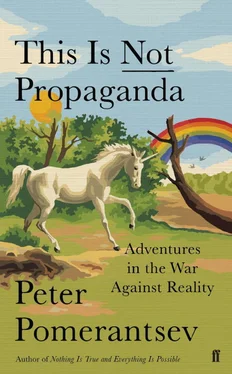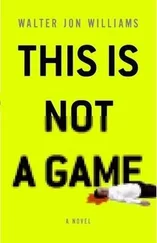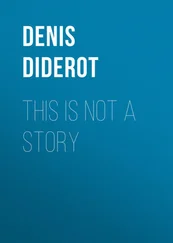When exactly did the Kremlin start to think about how to crawl into digital pro-democracy movements to subvert them? After the troll farm’s activities in the US were discovered, Dr Marcos Bastos, the London-based professor who had collected twenty million tweets from years of protests by ‘rooted cosmopolitans’, became curious: what had all those Internet personas been doing previously?
Bastos went back to his database. He returned to protests in Brazil, Venezuela, Spain, all the way back to 2012. And he found the Kremlin’s masked accounts had been there all the time, right from the peak of the ‘third wave of democratisation’. Even as the first protests had rolled through Brazil, Venezuela, Spain, the Kremlin was already experimenting with the possibility of penetrating and exploiting them from the inside. Back in 2012 the Kremlin sock-puppet accounts didn’t do anything spectacular; they just embedded themselves, building capillarity, impersonating their way into the digital networks of the revolutionaries. When he dug deeper Bastos found that some accounts had even been created back in 2009, though whether those were created by the IRA or were organic accounts that were later compromised by the agency is another matter.
Bastos recalled a lecture he had given at the Higher Economics School in St Petersburg in 2013. It was about how influence in digital protest movements was achieved not by having a few powerful influencers with many followers, but by many small ones communicating incessantly. Usually his crowd consisted of fidgety academics or wealthy hipster students barely paying attention. This time there was someone else: two men, middle-aged, in suits, just staring at him, their heads not moving, taking in every word like recording automatons and writing careful notes.
*
Meanwhile, back in the western Balkans Srdja Popović has to watch his own tactics being used against his own ideals, like in some crooked hall of mirrors.
When (genuine) protests had begun against Macedonia’s former prime minister, and Putin ally, Nikola Gruevski, in 2015, demonstrators poured red paint into the fountains near where Gruevski’s bodyguard had murdered a student. They threw paintballs against the buildings of corrupt state institutions that had wire-tapped journalists and opposition parties, so that the city centre began to look like a huge Jackson Pollock painting. They held night-time rallies, bearing torches and wearing white masks to symbolise how the regime wore a fake face. So far, so Srdja.
But every time the opposition protested, the regime would bring in its own counter-protesters. They wore the same masks and bore the same torches, matching the original protests symbol for symbol. Gruevski would eventually be voted out, but the protests were a sign of how one could parody colour revolution tactics.
The parody would reach a different pitch the next year in Montenegro, where an oligarch who made his money in Russia, Russian oligarchs and the Kremlin’s secret services tried to disrupt the Montenegrin government, which had brought the country into NATO.
‘First, they united an utterly fractious opposition around a lowest common denominator – government corruption,’ relates Srdja, talking about the creation of a Montenegrin opposition movement that brought together Serbian nationalists, Orthodox Christians and Communists. ‘They widened the battlefield by bringing in international players with Russian money; then they prepared to claim electoral victory, and when they lost the election they launched street protests.
‘What happened in Macedonia and Montenegro is right out of my book, but reversed, and missing the most important parts,’ argues Srdja, as he sits in front of the huge clenched fist that has become synonymous with all the protests he has inspired, scrawled on walls from Cairo to Caracas. ‘They think that popular will does not matter, that you don’t need to win elections, for example, while we make it the basis of our strategy. And they think you can use violence to make up for the lack of popularity, while we know that non-violent movements are the more successful.’
Throughout all this topsy-turviness, where the destination of the ‘waves of democratisation’ has come under question, Srdja has remained indefatigable. Anyone who is lucky enough to attend one of his workshops will experience the sense that change is just around the corner. Though with time some of the lessons have changed. Sometimes Srdja finds he is teaching his students not so much how to overturn authoritarian regimes as how to defend democracies. Increasingly he is asked to work in countries where democracy had been considered to be secure.
‘What is the lowest common denominator among your institutions? Which are the ones you can gather a coalition to protect? Is it the courts? The media?’ he asks.
When I talk to him, there is only one moment when he becomes frustrated: when I describe what he does as a ‘technology’, a ‘model’.
‘This is not a model. This is not a technology. We give people skills. We teach them how to play the guitar, not what to play… That’s the great difference between us and them. They think you can use people like puppets. That you can import and export revolution. We train people to take power themselves.’
But what, I can’t help wondering, if ‘the people’ who want to take power do so to abuse other people?
The Discord Channel
The Discord Channel is a closed Internet site usually used by computer-game fanatics, but it has become increasingly popular among far-right groups as a place to meet online and plan digital influence campaigns. Groups are private, and in order to gain access to the Infokrieg group you may first want to create an avatar who claims to be interested in the philosophy of Friedrich Nietzsche, and maybe spend some time developing an online alter ego which regularly reposts articles about migration and cultural cohesion. Once inside Infokrieg you will be able to download an ‘Information War Manual’, where you will be given a status depending on how many followers you have: twenty-five to a hundred makes you a ‘Baron’; over 10,000 means you are ‘an Übermensch Influencer’. You will then read up on different campaign tactics: how to coordinate online in order to taunt ‘mainstream’ journalists (known as ‘sniper missions’); how to post nasty comments on the Facebook pages of politicians; and how to plan ‘dislike’ campaigns on YouTube, where you ‘vote down’ videos of your opponents. If you get into an online ‘dogfight’ with the enemy – a debate you can’t win, for example – then you post to the hashtag #Air Support and other Infokrieg members will come to your aid, spamming the conversation with their taunts. [21]
Infokrieg also has its own meme factory, where activists are provided with existing pictures and then deface them with their own words in order to change their meaning. One meme created by Infokrieg, for example, showed a highly saturated drawing of a happy American family right out of a 1950s advert, with the words ‘Right Wing Extremists’ printed beneath it, indicating that traditional ways of life are being marginalised.
But what caught my eye on Infokrieg was the language used by some of the participants: ‘Don’t use any National Socialist memes. Focus on lowest-common-denominator themes: mass migration, Islamification, Identity, Freedom, Tradition.’ ‘Lowest common denominator’ was a concept right out of Srdja’s playbook.
Infokrieg was created by members of the ‘Génération Identitaire’ movement. Martin Sellner, leader of the Identitarian Movement of Austria, is perhaps the movement’s most prominent figurehead and its intellectual leader. He advocates a culturally homogeneous Europe and the ‘remigration’ of Muslims: a sort of soft, peaceful path to achieve aims which sound not dissimilar to the ethnic cleansings Milošević supported.
Читать дальше












